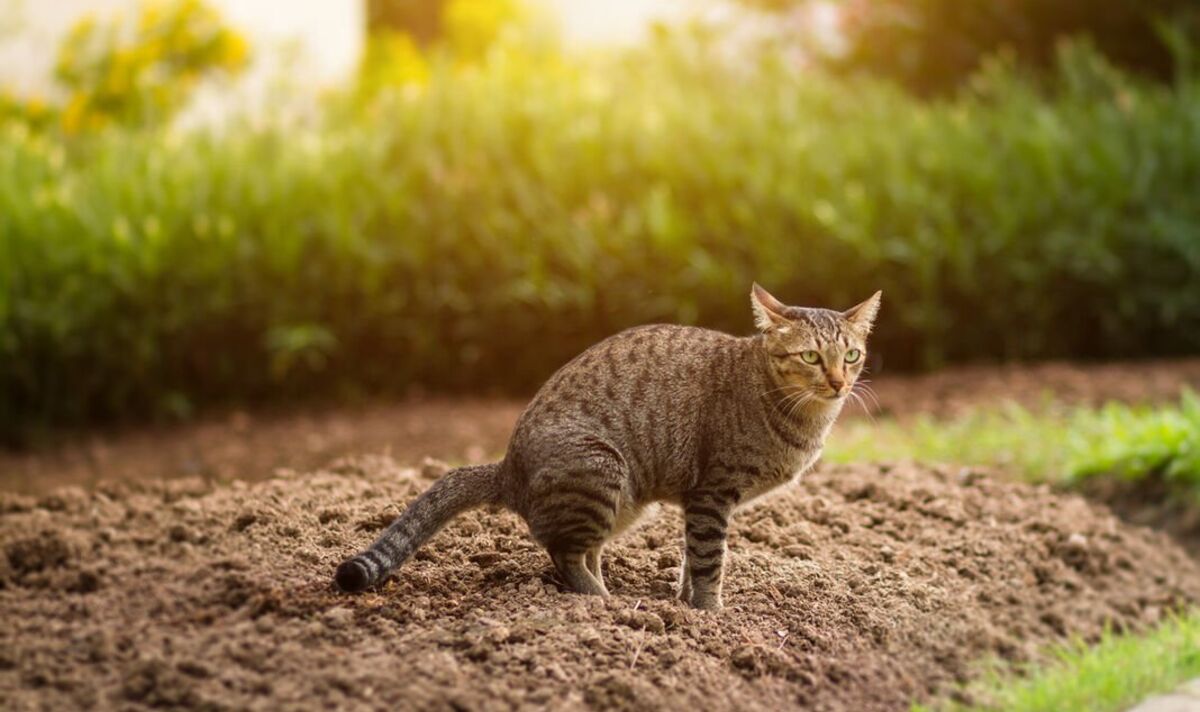

Articles
How To Stop Cats From Pooping In Garden
Modified: February 26, 2024
Learn effective strategies to prevent cats from using your garden as a litter box. Get expert gardening tips to keep your outdoor space clean and cat-free.
(Many of the links in this article redirect to a specific reviewed product. Your purchase of these products through affiliate links helps to generate commission for Storables.com, at no extra cost. Learn more)
Introduction
Gardens are a source of joy and relaxation for many homeowners. They provide a peaceful retreat, a canvas for colorful flowers, and a space to grow delicious fruits and vegetables. However, one frustrating problem that gardeners often face is cats using their gardens as a litter box.
Cats, by nature, are curious creatures and are known for their love of exploring outdoor spaces. While most cat owners properly train their pets to use a litter box indoors, stray or feral cats often roam freely, leaving behind unwanted surprises in our precious gardens.
Not only can cat poop be unsightly and smelly, but it can also harbor parasites and diseases, posing a risk to both humans and other animals. Fortunately, there are effective measures you can take to prevent cats from defecating in your garden and preserve its beauty and cleanliness.
In this article, we will explore a variety of methods and strategies to deter cats from using your garden as a bathroom. By creating a cat-friendly area, using repellents, installing physical barriers, employing scare tactics, and removing potential attractions, you can enjoy a pest-free and cat-free garden.
Key Takeaways:
- Create a cat-friendly area in your garden with loose soil, vertical elements, and cat-friendly plants to redirect their behavior and minimize unwanted pooping.
- Use a combination of repellents, physical barriers, scare tactics, and removal of attractions to effectively deter cats from using your garden as a litter box.
Read more: How To Stop Cat From Pooping On A Carpet
Understanding why cats poop in gardens
Before we delve into the solutions, it’s important to understand why cats are drawn to using gardens as their personal litter boxes. By gaining insight into their behavior, we can effectively address the underlying reasons and implement appropriate deterrents.
Firstly, cats are instinctively attracted to loose and soft soil, which mimics the texture of their natural outdoor litter. Gardens, with their abundance of loose soil, make for an enticing alternative to a litter box.
Secondly, cats are territorial animals. They may mark their territory by urinating or defecating in strategic locations. Your garden, with its unique smells and open spaces, may be seen as an ideal spot for cats to assert their presence.
Moreover, gardens often provide hiding spots for small animals like mice or birds, which in turn attract cats looking for prey. Cats may use your garden as a hunting ground, leaving behind evidence of their activities.
Lastly, if your garden has previously been used by cats as a litter box, the smell may linger, attracting other cats to the area. Once one cat has established it as a suitable spot, others are likely to follow.
Understanding these motivations behind cat behavior in gardens allows us to develop effective strategies to discourage them from using our cherished outdoor spaces as their toilets. By addressing the underlying desires of cats, we can make our gardens less appealing and encourage them to seek alternative areas.
The importance of stopping cats from pooping in your garden
While the presence of cats in your garden may initially seem harmless, there are several important reasons why you should take action to stop them from using your garden as their personal litter box.
First and foremost, cat feces can pose a health risk to humans and other animals. Cat feces may contain parasites such as Toxoplasma gondii, which can cause toxoplasmosis, a potentially serious illness, especially for pregnant women and individuals with weakened immune systems. By preventing cats from defecating in your garden, you’re reducing the risk of exposure to these harmful organisms.
Furthermore, the smell and sight of cat feces in your garden can be unpleasant and off-putting. It can detract from the beauty and tranquility of your outdoor space, making it less enjoyable for you, your family, and your guests. The presence of cat poop can also deter other wildlife and beneficial insects from visiting your garden.
In addition to aesthetic and health concerns, cat feces can also damage your plants. The high nitrogen content in cat poop can burn and harm your plants, leading to stunted growth and decreased productivity. It can also introduce harmful bacteria and pathogens into the soil, negatively impacting the overall health of your garden.
Another reason to deter cats from using your garden as a litter box is to protect the natural wildlife in your area. Cats, especially those that roam freely as strays or feral cats, are skilled hunters and can have a detrimental impact on local bird populations and other small animals. By preventing cats from entering your garden, you are promoting a balanced and harmonious ecosystem where native wildlife can thrive.
Ultimately, stopping cats from pooping in your garden is not just about maintaining the cleanliness and aesthetics of your outdoor space. It is about safeguarding your health, protecting your plants, preserving the environment, and creating a welcoming and enjoyable garden for yourself and those who visit.
Creating a cat-friendly area
While the goal is to deter cats from using your entire garden as a litter box, it’s important to provide them with an alternative area where they can satisfy their natural instincts. By creating a cat-friendly area in your garden, you can redirect their behaviors and minimize the likelihood of them defecating in unwanted spots.
Firstly, designate a specific area in your garden that is separate from your main plant beds or vegetable patches. This area should be easily accessible to cats and should consist of loose soil or sand. Cats are naturally drawn to digging and burying their waste, so providing them with a designated area where they can do so will help satisfy their natural instincts.
Consider placing a shallow, wide container filled with sand or loose soil in the designated area. This will provide cats with a suitable spot to dig and bury their waste. Make sure to regularly clean and maintain this area to encourage cats to use it consistently.
Another way to attract cats to the designated area is by incorporating vertical elements, such as a scratching post or tall grasses, which provide opportunities for cats to mark their territory through scratching and rubbing.
Additionally, consider including some cat-friendly plants in this area. Certain plants, like catnip or catmint, can act as natural magnets for cats, attracting them to the designated spot. Not only will these plants serve as a lure, but they also provide additional stimulation and enjoyment for the cats.
Remember to regularly monitor and maintain the cat-friendly area to ensure it remains a desirable alternative for cats. By providing a dedicated space for cats to engage in their natural behaviors, you can significantly reduce the likelihood of them using the rest of your garden as their litter box.
Using repellents to deter cats
Repellents can be effective in deterring cats from entering and defecating in your garden. There are various types of repellents available, both natural and commercially-made, that can help discourage cats from unwanted areas.
One natural deterrent is citrus. Cats generally dislike the smell of citrus fruits, so you can scatter citrus peels or spray citrus-infused water around your garden to create a cat-repellent barrier. Refresh the peels or spray regularly to maintain the scent.
Another option is to use plants that cats find offensive. Plants like lavender, rue, or coleus can act as natural repellents due to their strong scents. Planting these around the perimeter of your garden or in strategic spots can help keep cats at bay.
There are also commercially available cat repellents that use scent, sound, or motion to deter cats. These repellents often contain natural substances like garlic, cinnamon, or peppermint, which cats find unpleasant. Follow the product instructions for proper application, and reapply as needed.
Ultrasonic devices are another effective deterrent. These emit high-frequency sounds that are inaudible to humans but annoying to cats. Place these devices strategically around your garden to create a zone that cats will want to avoid.
It’s important to note that while repellents can be effective, they may not work for all cats, as individual preferences can vary. Therefore, it may be necessary to try different repellents or combinations of repellents to find the most effective solution for your garden.
Regularly assess the effectiveness of the repellents and be prepared to adjust your strategy if needed. By consistently using repellents, you can help discourage cats from entering your garden and reduce the likelihood of them using it as a bathroom.
To stop cats from pooping in your garden, try placing citrus peels or coffee grounds around the area, as cats dislike the smell. You can also use motion-activated sprinklers to deter them.
Read more: How To Stop Cats From Pooping On The Floor
Installing physical barriers
Physical barriers are an effective way to prevent cats from accessing and defecating in your garden. By creating barriers that cats cannot easily overcome, you can protect your garden space and keep it cat-free.
Fencing is one of the most common and effective physical barriers. Install a fence around your garden, making sure it is at least 6 feet high and has no gaps that cats can squeeze through. Use materials such as chicken wire or mesh with small openings to prevent cats from getting in.
Another option is to use prickly or thorny plants along the perimeter of your garden. Cats generally avoid areas with uncomfortable textures, so planting prickly shrubs or cacti can act as a natural deterrent. Just be sure to choose plants that are compatible with your garden environment and climate.
If your garden has raised beds or containers, consider placing a cover over them to prevent cats from digging and defecating in the soil. Covers can be made of mesh or wire, allowing air and sunlight to reach the plants while keeping cats out.
If your garden has low walls or ledges that cats can easily jump on, consider adding deterrents like anti-climbing strips or netting. These can make it difficult for cats to find a comfortable foothold, discouraging them from entering your garden.
When installing physical barriers, it’s important to ensure they are secure and properly maintained. Regularly inspect fences for any gaps or damaged areas, and repair them promptly. Trim any branches or overgrown vegetation that may offer cats a pathway into your garden.
Remember, physical barriers are most effective when used in combination with other deterrents and strategies. By implementing these barriers, you can create a physical barrier that prevents cats from accessing your garden, reducing the chances of them using it as a litter box.
Scare tactics and noise deterrents
Scare tactics and noise deterrents can be useful in deterring cats from entering and using your garden as a litter box. These methods work by creating an environment that cats find threatening or uncomfortable, encouraging them to avoid your garden altogether.
A common scare tactic is to use motion-activated sprinklers. These devices are equipped with sensors that detect movement and release a burst of water, startling cats and dissuading them from approaching. Place the sprinklers strategically in areas where cats are likely to enter your garden.
Another effective technique is using noise deterrents. Cats are highly sensitive to loud or sudden noises, and they will often retreat when startled. Consider using devices that emit high-pitched sounds or ultrasonic frequencies when cats enter your garden. These sounds are inaudible to humans but irritating to cats, encouraging them to leave.
You can also use visual scare tactics to make your garden less inviting for cats. Place reflective surfaces such as aluminum foil, mirrors, or old CDs in your garden. The reflections and glimmers can startle cats and make them feel uneasy, deterring them from entering and defecating in your garden.
Scarecrows and motion-activated repellents are also effective tools. These devices mimic the presence of predators or other threats and can deter cats from entering your garden. Keep in mind that these scare tactics need to be periodically moved or changed to prevent cats from getting used to them.
When utilizing scare tactics and noise deterrents, it’s important to consider the impact on other wildlife and your neighbors’ pets. Make sure that the methods you use are safe and that they comply with any local regulations or ordinances.
Remember, scare tactics and noise deterrents should be used in conjunction with other strategies to maximize effectiveness. By creating an environment that cats find intimidating or uncomfortable, you can discourage them from entering and using your garden as a litter box.
Removing potential attractions
One effective way to prevent cats from pooping in your garden is to remove any potential attractions that may be drawing them in. By eliminating factors that entice cats to your garden, you can reduce their presence and the likelihood of them using it as a litter box.
One of the primary attractions for cats is food sources. Ensure that your outdoor garbage cans are tightly sealed to prevent cats from scavenging through them. Place any food scraps or organic waste in a secure compost bin or dispose of it properly. By removing potential food sources, you discourage cats from visiting your garden in search of a meal.
Additionally, if you have bird feeders or bird baths in your garden, consider relocating them to a different area. Birds are a natural prey for cats, and by removing these attractants, you decrease the presence of both birds and the cats that hunt them.
Cat shelters or hiding spots can also be appealing to cats. Inspect your garden for any structures or areas that may serve as comfortable hiding spots for cats and eliminate them if possible. Sealing off access points beneath decks or clearing out dense vegetation can discourage cats from making your garden their home.
Managing rodent populations in your garden is another crucial step. Cats are natural predators of mice and rats, so if your garden has an abundance of these pests, cats may be drawn to it. Implement effective pest control measures to minimize the presence of rodents, making your garden less attractive to cats.
Regularly maintaining and cultivating your garden is essential in deterring cats. Keep your plants neatly pruned and free from overgrowth, as tall grasses and shrubs can offer hiding spots for cats. Raking leaves and removing any piles of debris can also help discourage cats from finding shelter in your garden.
By removing potential attractions, you create a less appealing environment for cats, reducing their motivation to use your garden as a litter box. Remember to consistently maintain these practices to ensure long-term success in keeping cats away from your garden.
Seeking professional help
If you’ve tried various strategies and deterrents but are still struggling to keep cats from pooping in your garden, it may be time to seek professional help. There are experts who specialize in animal behavior and garden pest control who can provide valuable guidance and assistance.
A professional animal behaviorist or cat behavior consultant can help identify the underlying reasons that cats are attracted to your garden and provide tailored solutions. They can evaluate the specific issues you’re facing and offer expert advice on modifying the environment to deter cats effectively.
In some cases, a wildlife control or pest control professional may be necessary. They can assess the extent of the cat problem and recommend appropriate measures to deter cats from entering your garden. This could include trapping and relocating stray or feral cats or implementing more advanced deterrent systems.
It’s important to choose a reputable and experienced professional who understands the delicate balance between addressing the cat issue and ensuring their well-being. Look for individuals or companies that specialize in humane approaches to wildlife control and have a proven track record of successfully resolving similar problems.
When seeking professional help, be prepared to provide them with details about the specific cat behavior and any previous attempts you’ve made to deter them. The more information they have, the better equipped they will be to develop an effective plan of action.
Remember, professional help should be considered a last resort after you’ve exhausted your own efforts and tried various deterrents. With their expertise, professionals can offer targeted solutions that address the unique challenges of your garden and help you achieve the desired results.
By collaborating with professionals, you can gain valuable insights and access to resources that will assist you in effectively deterring cats from your garden, ultimately creating a peaceful and cat-free outdoor space.
Conclusion
Cats using your garden as a litter box can be a frustrating and unsightly problem for any gardener. However, by implementing the right strategies and deterrents, you can successfully stop cats from pooping in your garden and maintain its cleanliness and beauty.
Understanding why cats are drawn to gardens, such as the soft soil, territorial instincts, and availability of prey, allows us to develop effective solutions. Creating a designated cat-friendly area with loose soil, plants that cats enjoy, and vertical elements can redirect their behavior and provide a suitable alternative.
Using repellents, both natural and commercially-made, can deter cats from entering your garden. Citrus peels, prickly plants, and motion-activated devices that emit sounds or water can be effective deterrents.
Physical barriers such as fencing, covers for raised beds, and anti-climbing measures can prevent cats from accessing your garden. These barriers are most effective when used in conjunction with other strategies.
Scare tactics and noise deterrents, such as motion-activated sprinklers and devices that emit high-frequency sounds, can make your garden less inviting for cats. Visual scare tactics like reflective surfaces can also startle cats and discourage them from entering.
Removing potential attractions like food sources, cat shelters, and hiding spots can make your garden less appealing to cats. Managing rodent populations and maintaining a well-groomed garden are important aspects of deterring cats as well.
If all else fails, seeking professional help from animal behaviorists, cat behavior consultants, or wildlife control professionals may provide the necessary expertise and solutions for your specific situation.
By implementing these strategies and taking proactive steps, you can create a garden that is less attractive to cats and enjoy a beautiful and cat-free outdoor space. Remember to evaluate and adjust your methods as needed to maintain long-term success.
With patience, persistence, and a combination of these approaches, you can finally say goodbye to cats pooping in your garden and enjoy the fruits of your gardening labor in peace.
Frequently Asked Questions about How To Stop Cats From Pooping In Garden
Was this page helpful?
At Storables.com, we guarantee accurate and reliable information. Our content, validated by Expert Board Contributors, is crafted following stringent Editorial Policies. We're committed to providing you with well-researched, expert-backed insights for all your informational needs.
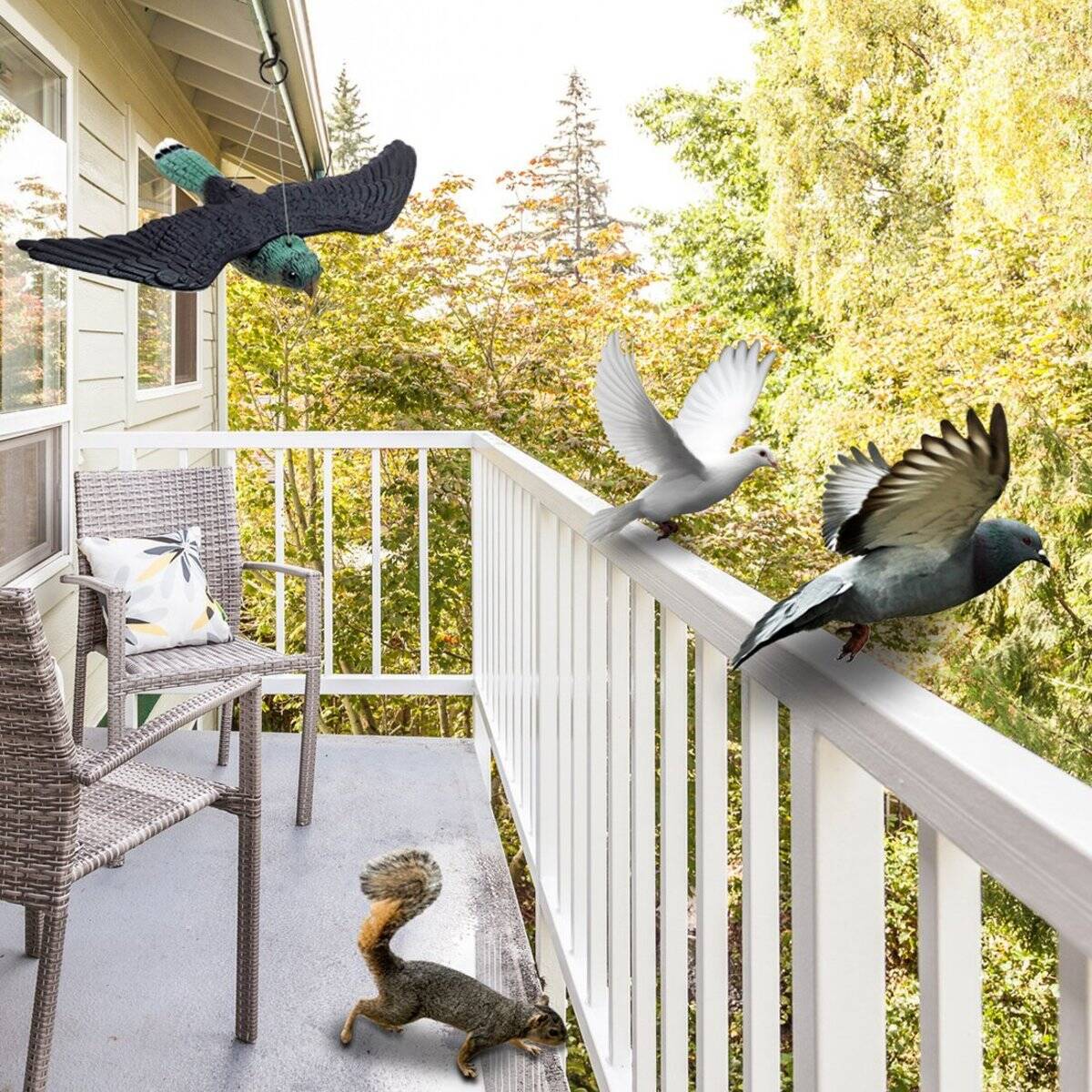
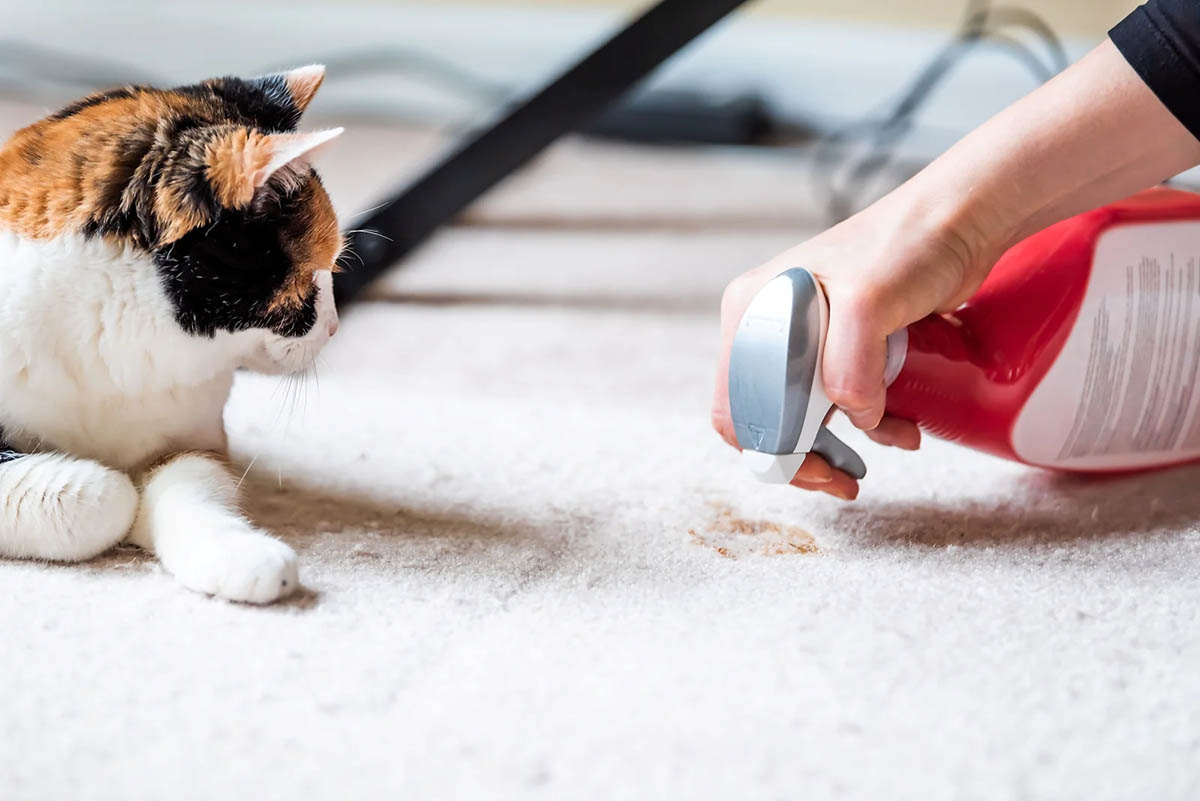

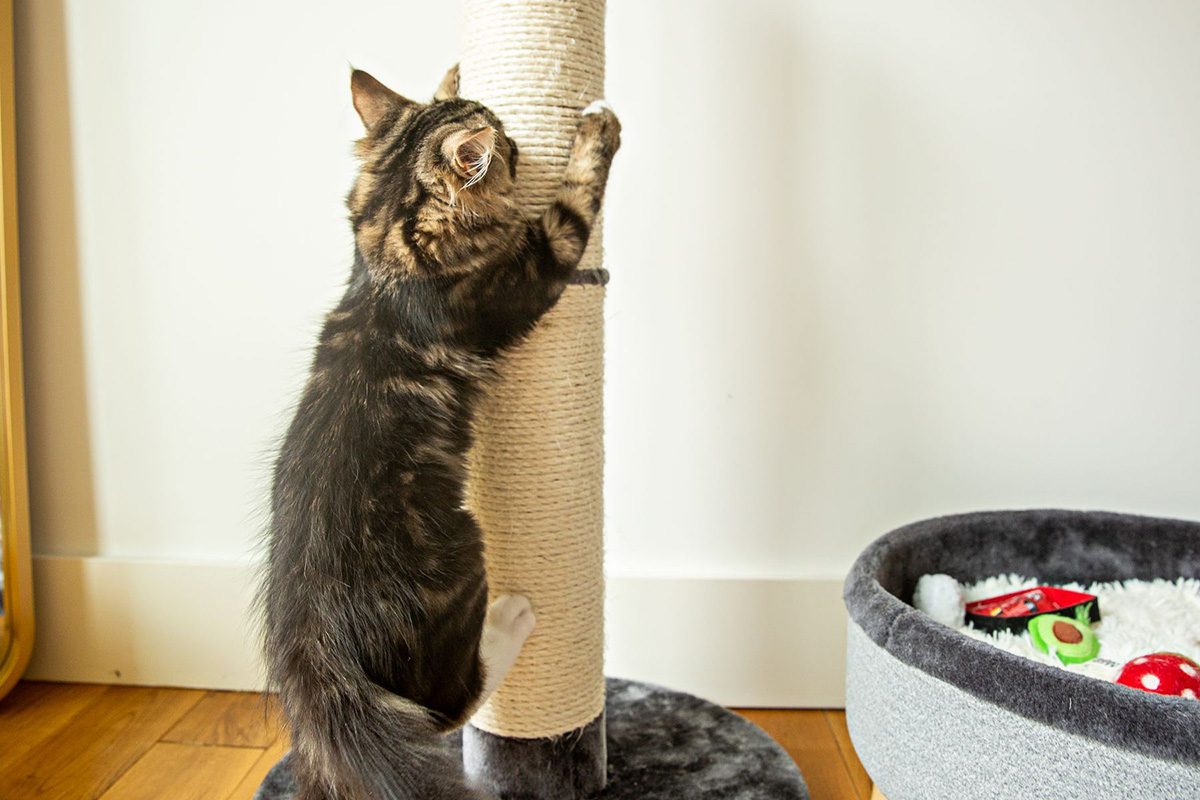
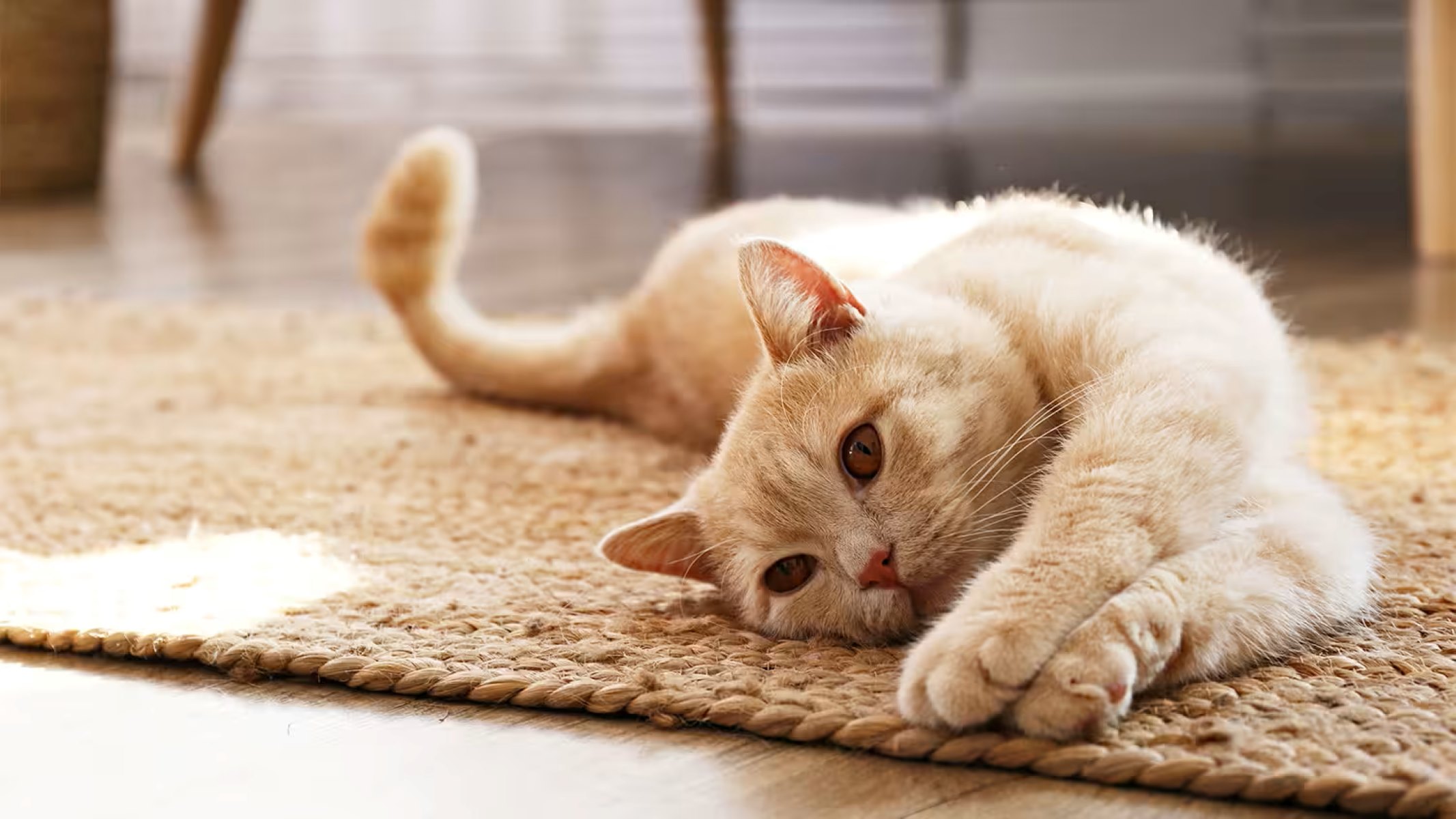
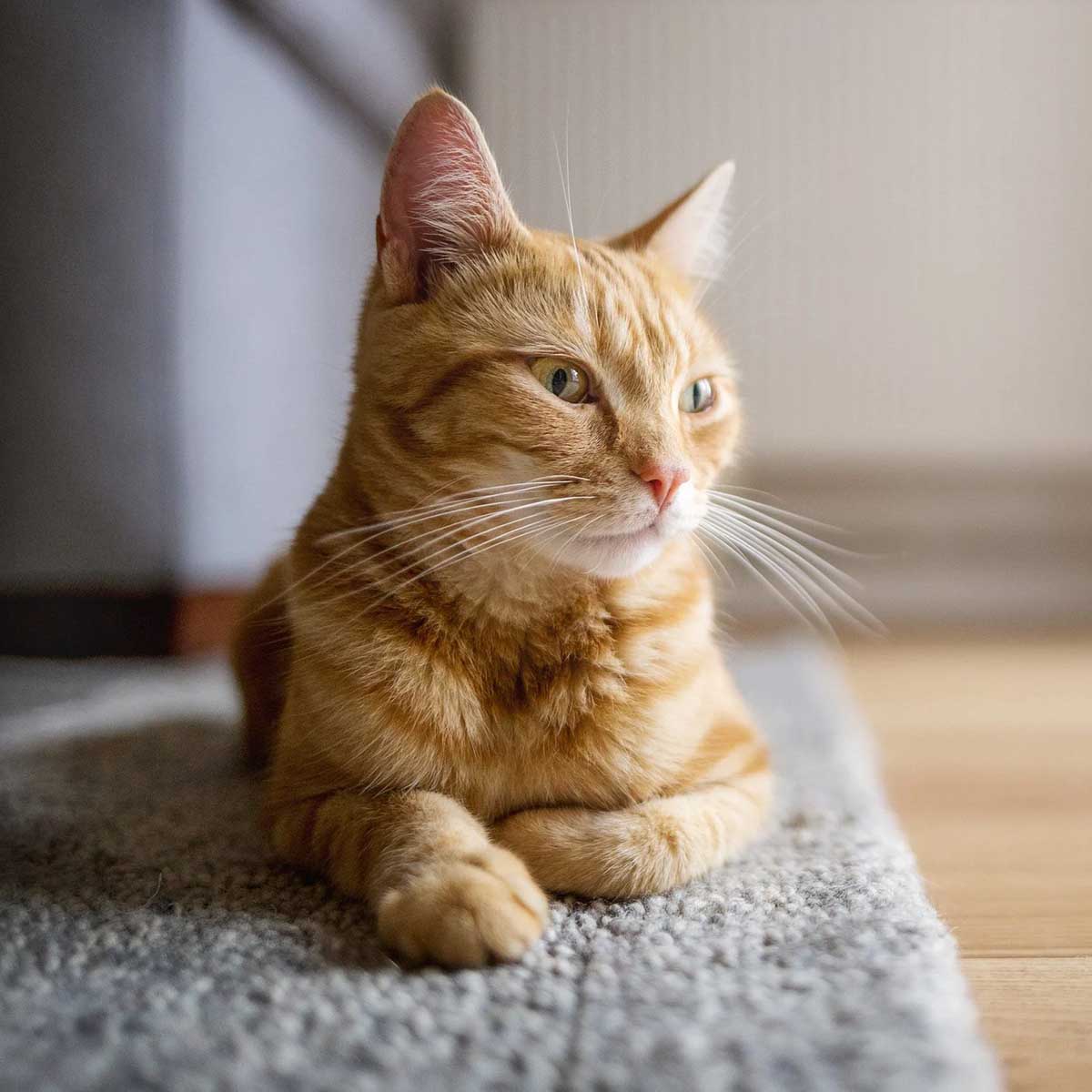
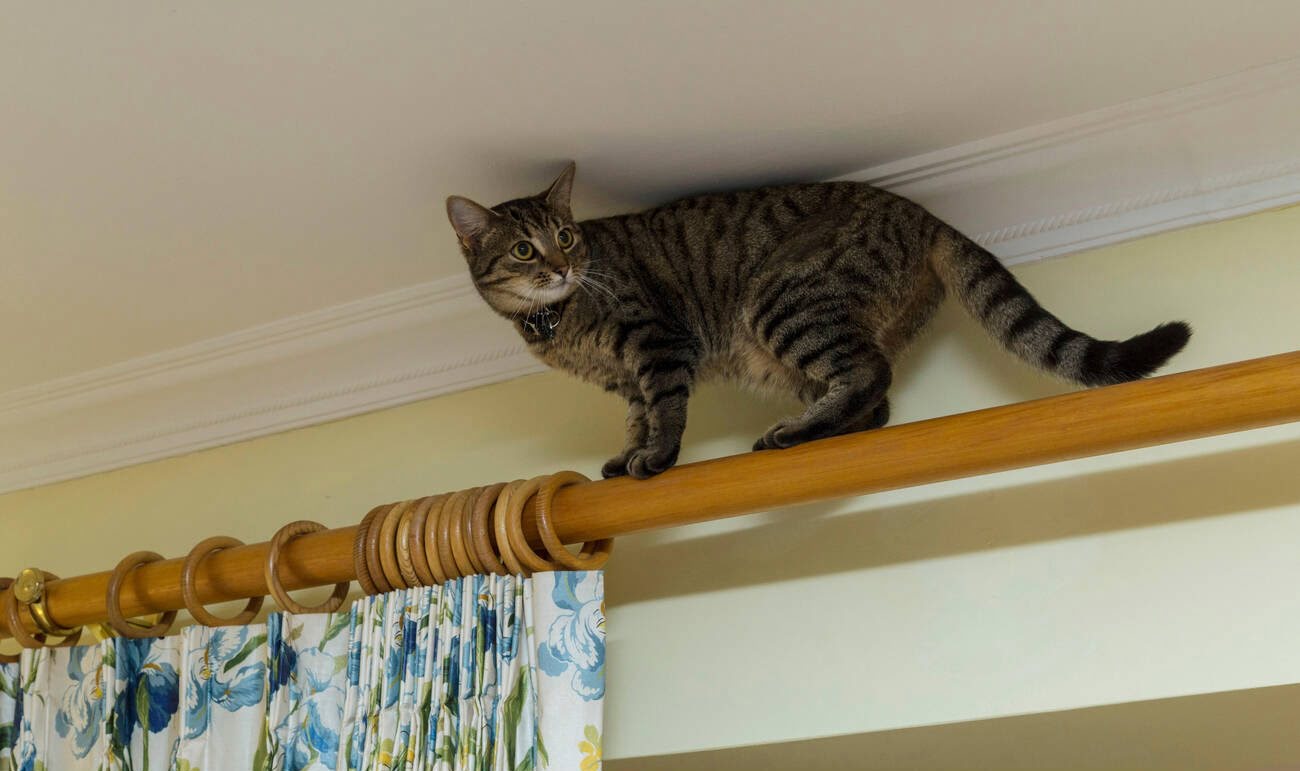
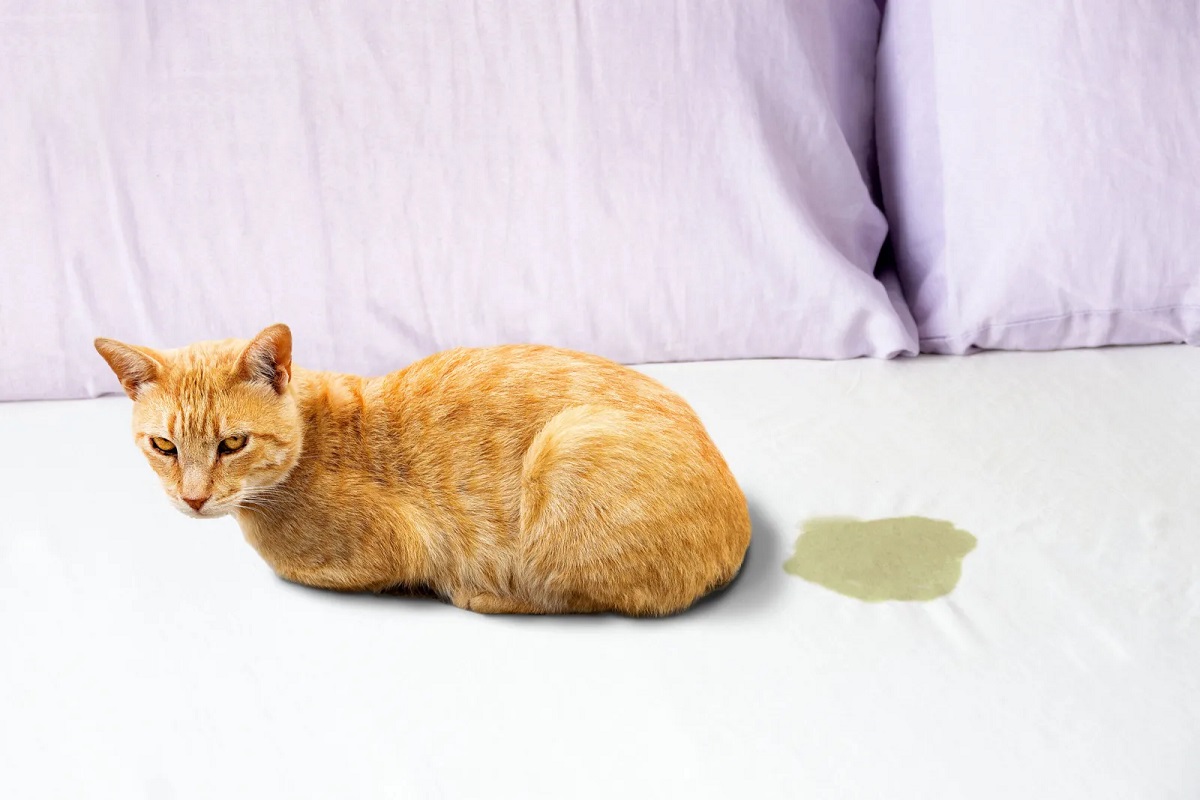
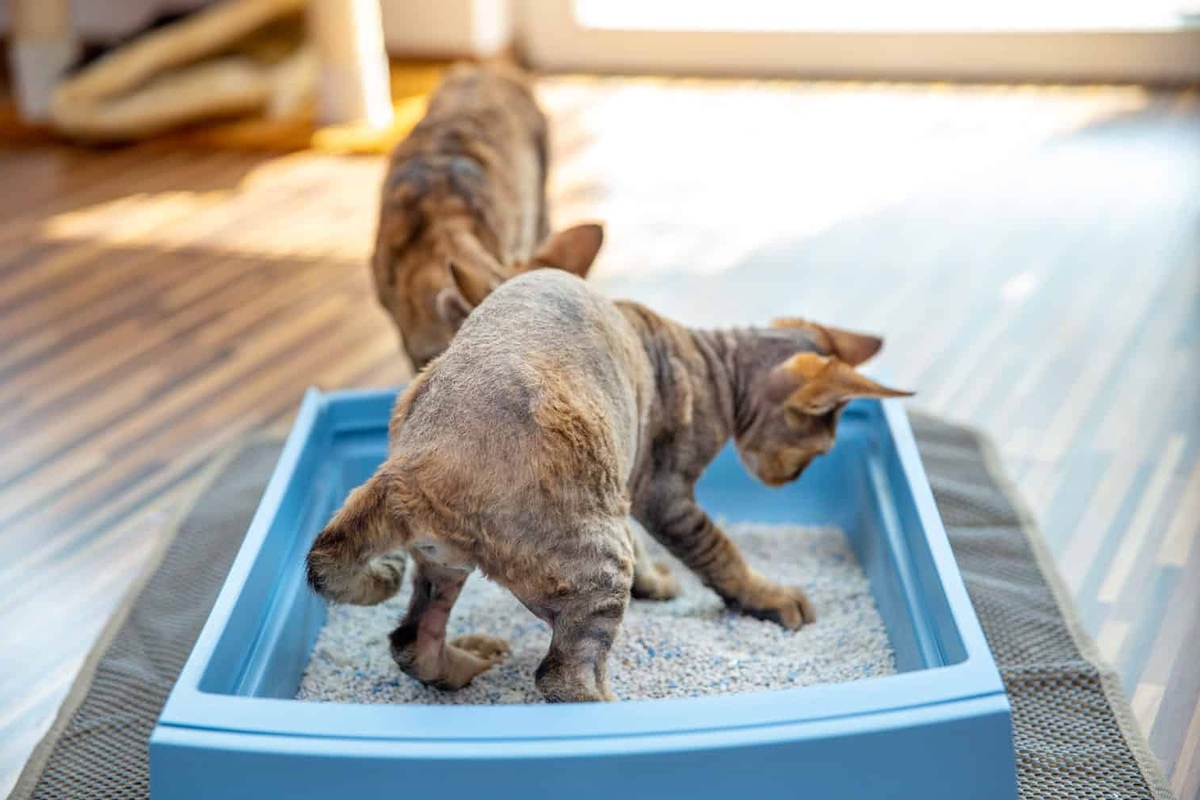
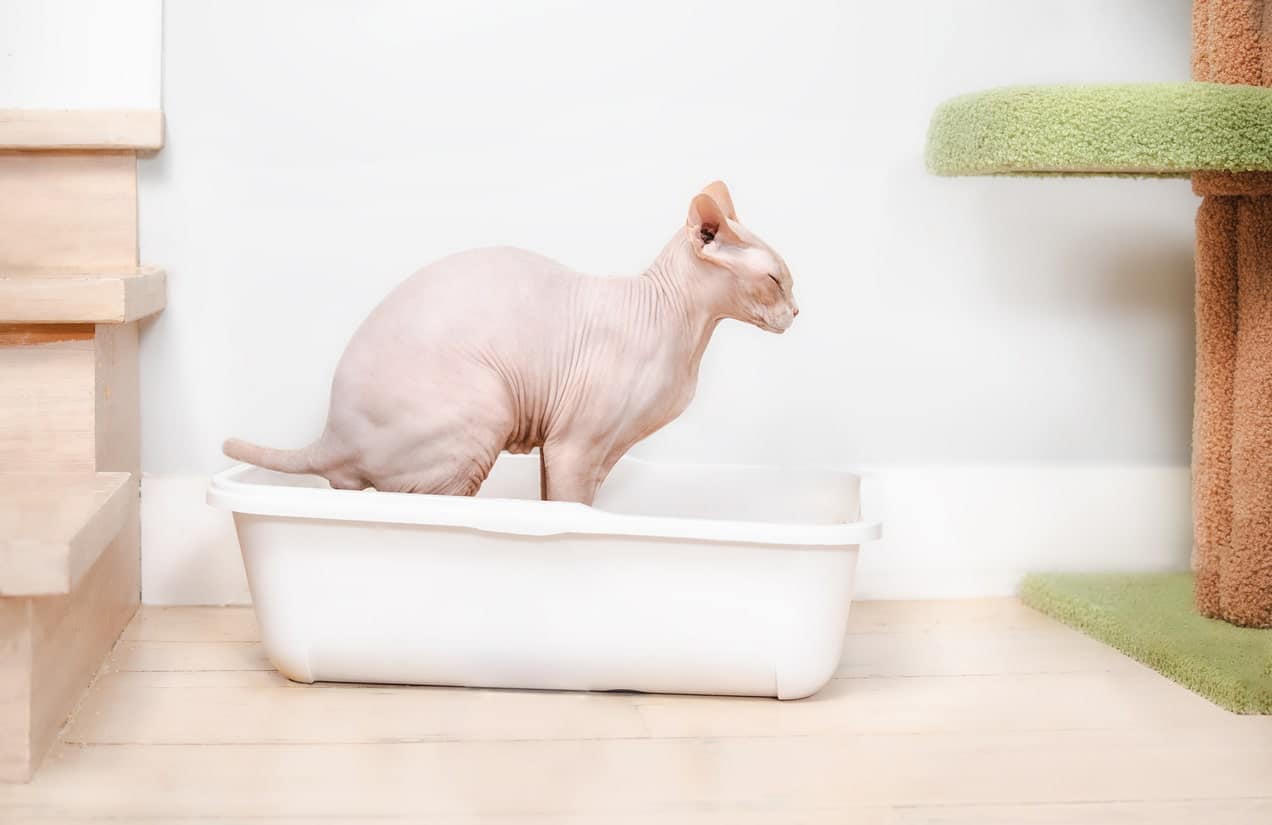
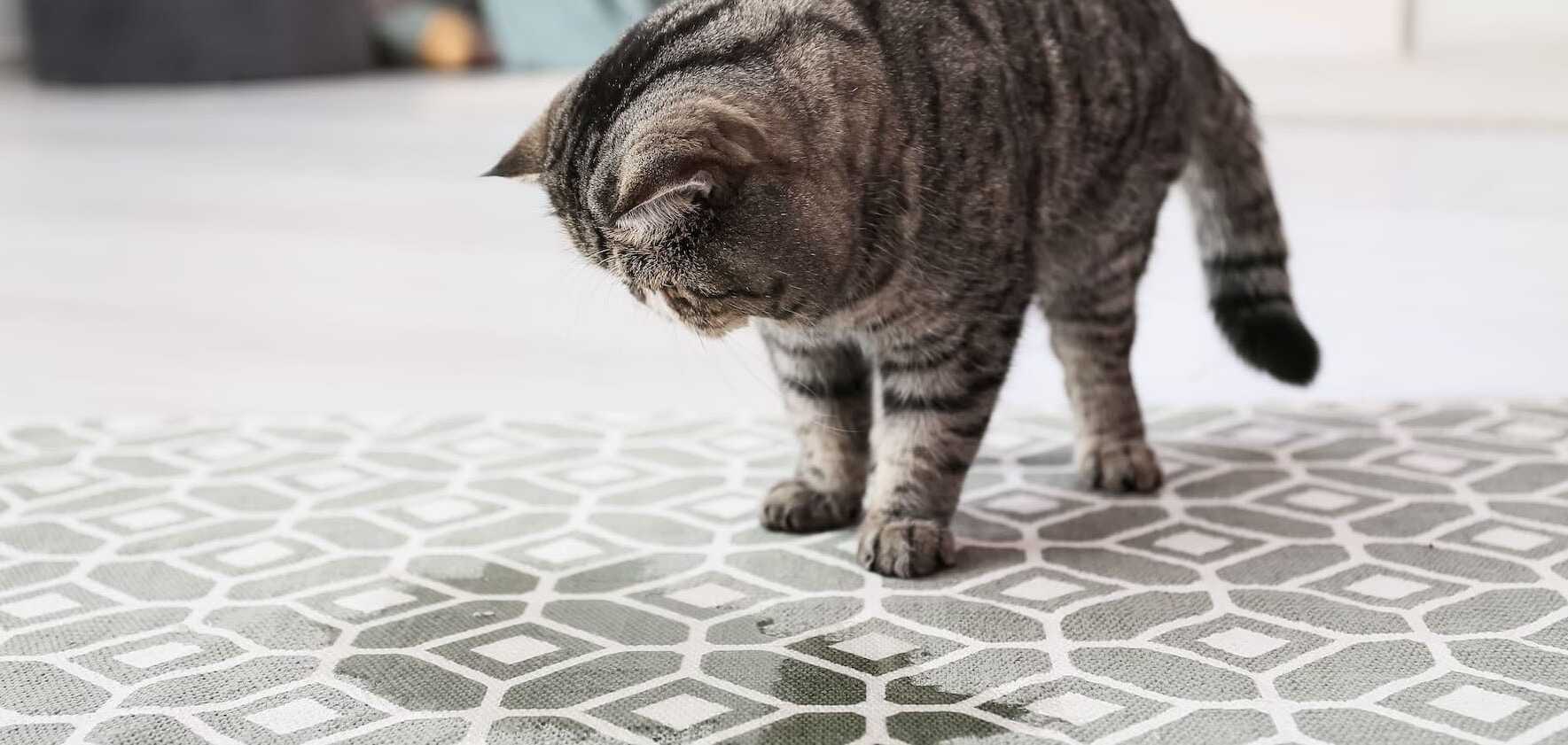
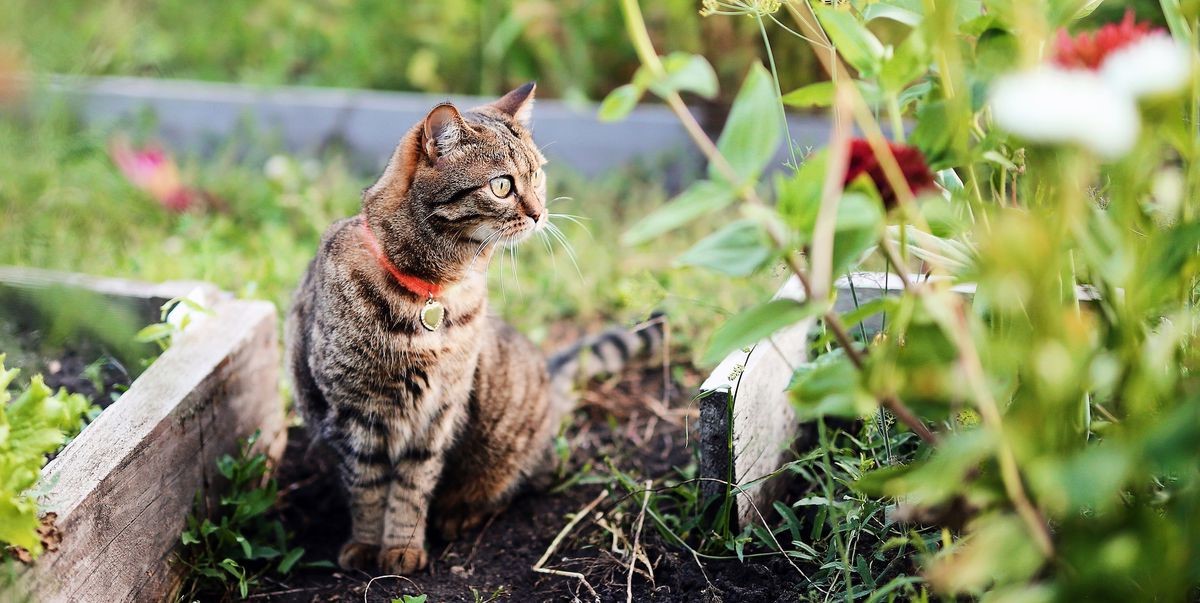
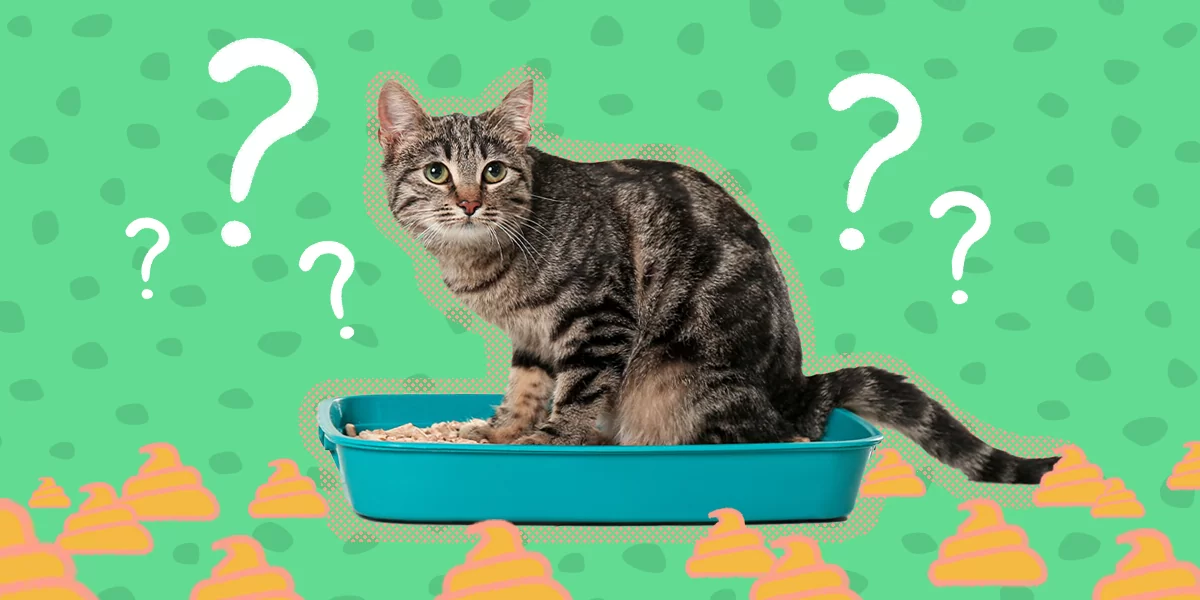

0 thoughts on “How To Stop Cats From Pooping In Garden”